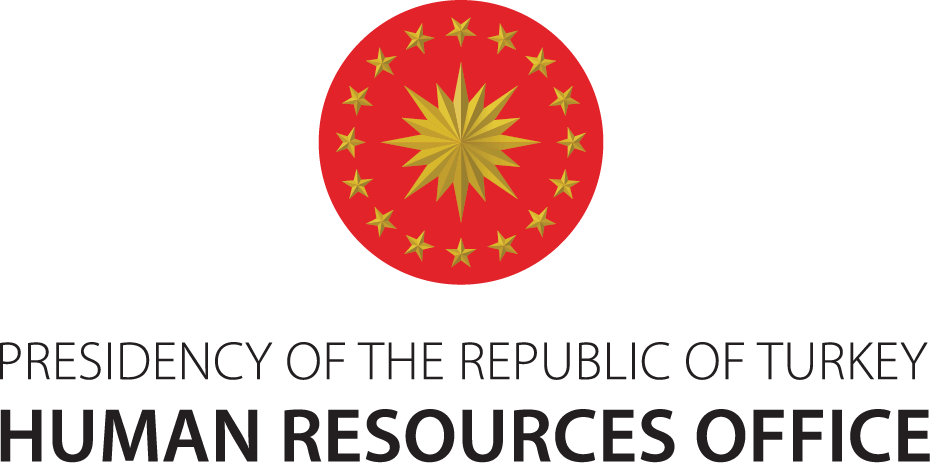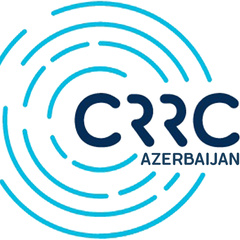


Hi, my name is Elsun Nabatov and I work as Senior Scientist for PRODATA company. I'm currently studying for an MSc in Data Science (specialization in AI) at Newcastle University. Experienced AI Engineer adept in NLP (LLM). Proven track record of leading strategic initiatives to enhance business outcomes using data-driven insights. Eager to contribute to the company's mission by leveraging advanced data modeling skills and a strong background in business domain analysis.
MSc in Data Science (specialization in AI) | 2023 - Present
MSc in Quantitative Economics | 2021 - 2023
BSc in Economics (English sector) | 2017 - 2021
PRODATA Company | November 2022 - Present
• Collaborated with a team of 15 members to conduct end-to-end fine-tuning of models on TensorFlow, PyTorch, and
Scikit-learn, achieving a remarkable 19% enhancement in overall performance and accuracy.
• Led the optimization of model hyperparameters, employing rigorous experimentation and cross-validation techniques,
resulting in a notable 21% improvement in predictive accuracy and a 14% reduction in false positives, while fostering a
collaborative team environment.
• Pioneered the conceptualization, and design of cross-functional environment, and development of NLP applications, harnessing
advanced transformer models such as BERT and GPT. This collaborative effort significantly improved accuracy and
performance in critical tasks like sentiment analysis and named entity recognition, leading to a substantial 40% increase
in data classification precision.
Presidency Of The Republic Of Turkey | July 2022 - November 2022
My role was to analyze economic data and trends to inform policymaking decisions, and provide recommendations to senior officials based on my findings.
Deloitte | May 2022 - July 2022
I assisted in analyzing data, developing reports, and providing recommendations to clients to help them identify and manage risks in their operations.
ATL Tech | July 2020 - October 2021
My responsibilities included analyzing large data sets, producing reports and visualizations, and providing actionable insights to drive data-informed decisions and improve business operations.
Caucasus Research Resource Centers | September 2020 - August 2021
I conducted research and analysis on socio-economic and political issues in the Caucasus region, gathering and interpreting data, and providing recommendations to inform policy decisions.





I specialize in using data to uncover insights that drive business decisions.
I collect, clean, and process data using tools such as SQL, Excel, and visualization software,
and present my findings in an easy-to-understand format.
I develop models using advanced statistical analysis and machine learning techniques to solve complex business problems.
I work with structured and unstructured data, and use tools like Python, TensorFlow, and PyTorch to build models for image
recognition and natural language processing.
Additionally, I extract data from websites and online sources using web scraping
libraries such as BeautifulSoup and Scrapy.
I analyze and interpret data to provide insights that drive business decisions,
using tools like Excel, SQL, and data visualization software.
I develop metrics to measure the success of business initiatives
and work with stakeholders to define key performance indicators.
I created a sustainability risk report for Coca Cola. This report analyzed the company's sustainability performance in areas such as water stewardship, energy and climate, and packaging, among others. Using data visualization tools such as PowerBI, I presented the findings in an easily digestible format that allowed stakeholders to understand the company's sustainability risks and opportunities. Through this project, I demonstrated my ability to use data analysis to drive strategic decision-making and address complex business challenges.
This project involved simulating the spread of an infectious disease and the impact of vaccination in Azerbaijan. We collected and analyzed relevant data on infection rates, vaccination rates, and other key factors, and used a data simulation tool to model the spread of the disease under different scenarios. We also modeled the impact of different vaccination strategies, including timing and coverage rates, and evaluated their effectiveness in reducing the spread of the disease. Through this project, we were able to gain valuable insights into the best approaches for preventing and controlling infectious disease outbreaks in Azerbaijan, and our simulations provided valuable data to inform public health policy and decision-making.
This ERP project involved implementing an integrated software system to streamline our organization's various business processes, including finance, accounting, human resources, and supply chain management. We identified our business needs and selected an ERP system that best fit our requirements, and created a detailed project plan that outlined the timeline, tasks, and resources needed for a successful implementation. Our team worked collaboratively with the vendor to configure and customize the system, migrate data, and train our staff. Through this project, we were able to achieve significant efficiencies, reduce redundancies, and improve our ability to make data-driven decisions.
We developed a book recommendation system that uses content filtering techniques to provide personalized book recommendations to users based on their reading history and preferences. We enriched a large dataset of book titles and authors with metadata such as genre, subgenre, and synopsis using web scraping techniques. We then used collaborative filtering and content-based filtering to generate book recommendations. We built a user-friendly website called BOOKLE that integrated our book recommendation system and allowed users to create a profile, rate books, and receive personalized book recommendations. The website also allowed users to filter their recommendations based on different criteria. Through this project, we gained valuable insights into how to optimize our recommendation algorithm to better meet the needs and preferences of our users.
Our agriculture project in Azerbaijan focused on increasing crop productivity for vegetables, fruits, and cattle breeding. We used data analytics to collect and analyze production, planting area, and productivity data, and identified patterns and trends in crop performance. This information was used to optimize irrigation and fertilization systems, which led to increased crop yields and reduced water usage. We also introduced weather forecasting and pest monitoring systems, which provided farmers with real-time information on weather conditions and pest populations. This allowed farmers to take timely action to protect their crops, resulting in improved crop quality and higher yields. Overall, our project helped farmers in Azerbaijan to achieve more sustainable and profitable agricultural practices by providing them with data-driven insights and recommendations. This project demonstrated the potential of data analytics to optimize agricultural practices and improve food security.
Our Real Estate survey analysis project in Azerbaijan involved collecting and analyzing data on the local real estate market. We collected information on property prices, location, size, and other relevant factors, and used data analytics tools to identify trends and patterns in the market. We also conducted surveys to gather information from real estate agents and property owners. Using this information, we created a comprehensive report on the real estate market in Azerbaijan, which provided valuable insights into the market conditions and trends. This report was used by investors and developers to make informed decisions about real estate investments. Our project was able to provide a data-driven approach to the real estate market in Azerbaijan, and helped to support better decision making for investors and developers. The insights and recommendations provided through this project can also be used to inform government policies and regulations related to the real estate market.
Our Data Warehouse project involved developing a centralized database for an organization's data storage and analysis needs. We designed and built a system to gather data from multiple sources, organize it into a standardized format, and store it in a central repository. Our Data Warehouse solution allowed for efficient data processing and analysis, with tools for reporting and data visualization. It enabled the organization to have quick and easy access to relevant data, resulting in better and faster decision-making. Our project demonstrated the value of a Data Warehouse solution, providing a cost-effective way to store and analyze large volumes of data in a centralized and standardized manner, while also making it easily accessible for decision-makers.
Our project for MKT, a cotton company in Azerbaijan, focused on optimizing the company's cotton production process. We collected and analyzed data on various aspects of cotton production, including planting, harvesting, and processing. Using this information, we developed and implemented a data-driven approach to cotton production, which included identifying the most effective planting and harvesting techniques, optimizing irrigation and fertilization schedules, and improving the quality of the cotton crop. Our project helped to increase the company's cotton production efficiency and yield, resulting in cost savings and increased profits for the company. Our data-driven approach can be applied to other areas of agriculture, helping to optimize production and improve profitability.
Our project with the Unemployment Agency involved using data analytics to better understand the unemployment situation in Azerbaijan. We collected data from the Azerbaijani Statistical Committee on various aspects of unemployment, including age, gender, education, and industry. We performed descriptive and diagnostic analytics on the data, which allowed us to identify correlations between different variables. For example, we found that unemployment rates were higher among certain age groups and education levels, and that unemployment was more prevalent in certain industries. Using this information, we provided recommendations to the Unemployment Agency on how to more effectively target their services and support to those in need.
This web intelligence project focuses on the collection, analysis, and dissemination of information obtained from publicly available sources on the internet. Using a variety of tools and techniques, the project aims to provide valuable insights into a specific topic, person, or organization. The project includes the use of various types of web intelligence, including Open-Source Intelligence (OSINT), Signals Intelligence (SIGINT), Geospatial Intelligence (GEOINT), and Cyber Intelligence (CYBINT), to gather and analyze data from a range of sources such as social media, news outlets, blogs, and government databases. The project's goal is to provide clients with accurate and reliable information to support their decision-making processes.
Our NLP project for Azerbaijani language involved developing a set of tools to preprocess and analyze text data in Azerbaijani. We used natural language processing techniques to perform tasks such as tokenization, stemming, and stop word removal on a dataset of Azerbaijani text. Using these tools, we were able to perform various analyses on the text data, such as sentiment analysis or topic modeling. For example, we identified common themes and sentiments expressed in Azerbaijani news articles. Our NLP project demonstrated the potential for natural language processing technology to be used in the Azerbaijani language space, and provided a foundation for further development of NLP applications for Azerbaijani language, such as chatbots or automated customer support systems.
This business intelligence project involved using data analytics and visualization tools to gather, analyze, and present information that helped our organization make informed business decisions. We identified a business problem and collected relevant data from multiple sources, cleaned and preprocessed the data, and used a BI tool to create visualizations that helped us identify trends, patterns, and insights in the data. We then analyzed and interpreted the results and shared them with relevant stakeholders in our organization to drive innovation and improve business performance. Through this project, we were able to gain valuable insights and optimize our business processes to better meet our goals.
© Elsun Nabatov. All Rights Reserved 2023. Designed by HTML Codex